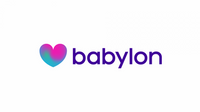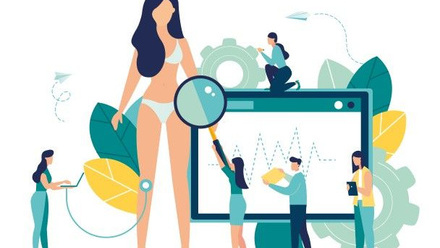Using AI to reduce employee sick days

At this time last year, absenteeism was high. Morale was low. Like most HR managers, Nadine was at a loss for how to get back on track. Reduce paid sick leave? Use an EAP? Rewrite the policy (again)? She never imagined a robot would be the answer.
New developments in Artificial Intelligence (AI) have made it possible to diagnose, treat and even prevent employee illness, all from within a mobile app.
The hidden costs of employee illness
Last year, the Office for National Statistics reported an astounding 137 million working days lost due to sickness and injury. But as Nadine knows all too well, the grippe is only part of the problem.
For employers across the globe, overburdened healthcare systems make absenteeism worse.
Think of the employee who only just felt the tickle in the back of her throat. The star performer who wants to take preventative action but doesn’t want to risk her deadline to spend a day hanging around a waiting room. Should she give up? Power through? Trust her diagnosis to Dr.Google?
When Nadine and her team started using AI-enabled healthcare, getting advice from an experienced GP became simple and fast. Instead of taking half a day or more out of office, staff were spending an average of 8 minutes in appointments with their GP and had prescriptions delivered straight to their home or office.
Fighting frequent and long term sickness
Using the AI doctor made it easy for Nadine’s employees to address long term health issues they’d been putting off or ignoring.
It delivered quick referrals and confidential advice on their time, which led to a number of employees recognising, and recovering, from long term physical and mental health issues.
Using the GPS in employees’ mobile phones, the AI doctor even went as far as to check in on employees who hadn’t left home in a while. This not only helped monitor long term illness, it also helped track symptoms related to stress, anxiety and depression — health problems that affect some 34% of the UK’s working professionals.
The system even kept track of employees’ prescriptions, using AI to remind them when it was time to take their medicine. After finishing a prescription, the AI doctor closed the loop by checking in again to see if they were feeling better or if they needed to book another appointment with a GP.
Preventing absenteeism with an app
Nadine now knows what a growing number of HR professionals are catching on to. The secret to a winning wellness programme is to make it dead easy.
The system tracks key biometrics like genetics, environment, behaviour and biology, and integrates seamlessly with other health apps and fitness trackers to help keep employees aware and engaged in their health. Nadine and her staff know exactly how often they need to work out and what vitamins to take, without having to write it down. Staying healthy is easy, and even fun. And it doesn’t need to interfere with work.
Nadine’s happy because her people are too.
Zoe Puckering is employee health & wellbeing executive at Babylon.
This article was provided by Babylon.
Supplied by REBA Associate Member, babylon
babylon is the UK's leading digital healthcare company.







